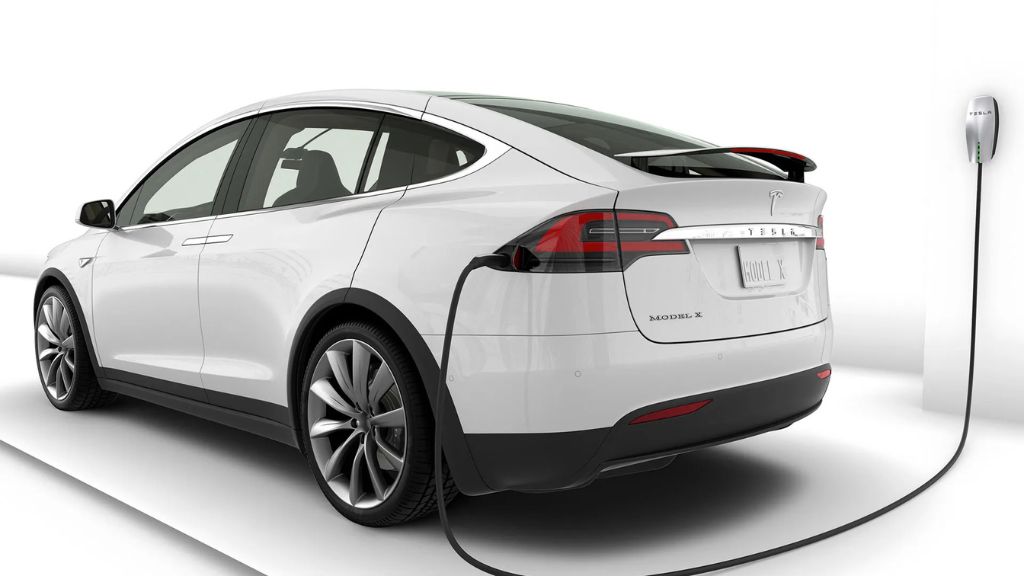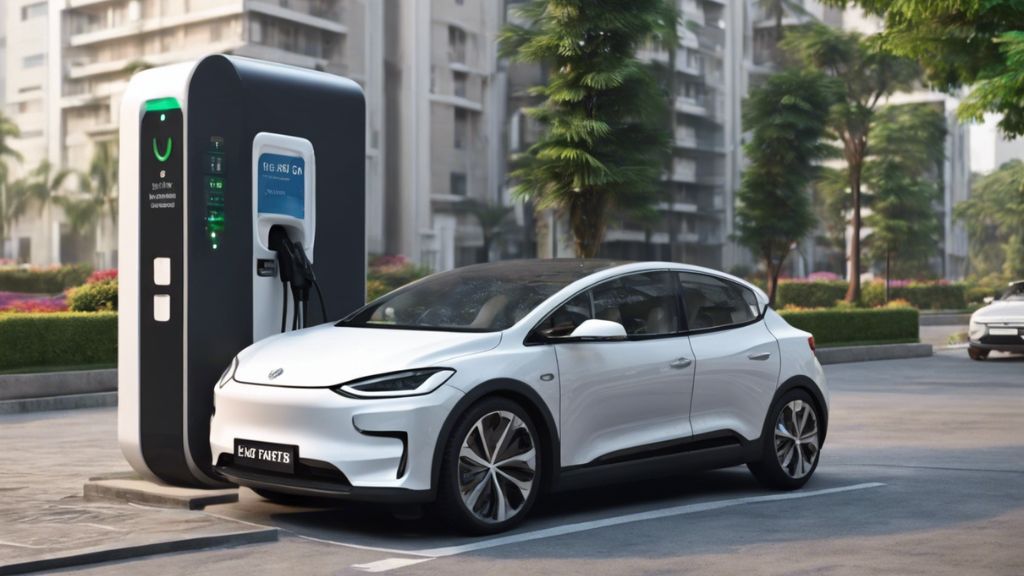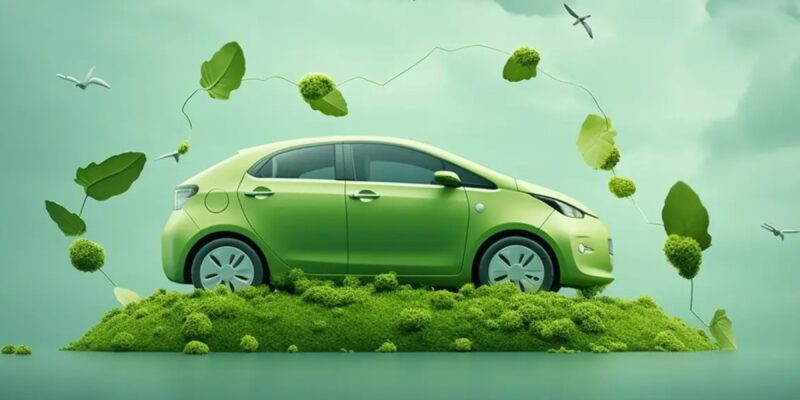| বাংলায় পড়ুন | Researchers and Reporters: Shama Sultana Ayesha Akhter |
Environmental contamination has become a global concern. Global warming has also led to a noticeable change in the climate. Every year, cyclones and droughts in Bangladesh, floods in the desert, or Dubai’s submerged land from heavy rains serve as a reminder of the state of the environment. Vehicle-generated black smoke is one of the factors contributing to global warming. Electric or environmentally friendly cars are becoming increasingly popular worldwide as a solution to this issue. We’ll talk about this environmentally friendly car in-depth today.
Eco-friendly electronic cars
A car with no adverse environmental effects is referred to as an eco-friendly electronic vehicle.
Various fuels and technologies power these vehicles, including cars that run on natural gas, clean diesel, hydrogen, electric, hybrid, and clean ethanol. In other words, vehicles that consume less carbon dioxide than gasoline or diesel or that rely entirely or partially on fossil fuel alternatives are referred to as electronic vehicles.
Electronic vehicle benefits
The sustainable car revolution is happening all across the world. Nowadays, developed nations are switching to these automobiles from gasoline-diesel-powered ones. They are working on multiple projects. because the environment benefits greatly from electronic vehicles. Let’s discuss the advantages of driving eco-friendly cars.

Electronic vehicle is being charged: Energy-efficient and environmentally friendly transportation. | Photo: Collected.
Eco-friendly
Environmentally, electric cars (EVs) are tremendously advantageous. Compared to gasoline-powered vehicles, they are particularly environmentally benign. Approximately 41% of carbon dioxide emissions come from gasoline-powered cars. Common car engines release large amounts of pollutants that are extremely harmful to the environment and human health, including carbon dioxide, nitrogen oxides, and sulfur oxides. Such contaminants are not emitted by electric cars.
Reasonably priced
Fuel for electric cars is far less expensive. An electric car can be charged for less than half the price of gas, even in regions with high power costs like California, where the average cost of a kilowatt-hour of electricity is more than 21 cents. States and nations with low electricity prices, as well as if you invest in renewable energy sources at home, like solar, will have even lower costs.
fast-paced
EVs operate more quickly than gas-powered cars. EVs’ motors may receive maximum torque for a considerably simpler engine, allowing them to reach their top speed in a matter of seconds. The excellent handling of many EV vehicles contributes to a comfortable ride.
Are electric cars truly environmentally friendly?
The ecology is harmed by common vehicles. Eighty to ninety percent of air pollution and greenhouse gas emissions that contribute to the ongoing rise in global warming are caused by these automobiles. However, because they generate fewer emissions, electric cars are roughly 50% more environmentally friendly than gas-powered vehicles. Renewable energy sources, such as photovoltaic system integration, or 100% clean energy can be used by electric vehicles. As per the International Council on Clean Transportation (ICCT), “Battery-electric vehicles have by far the lowest greenhouse gas emissions.”
The transportation industry is one of the biggest contributors to global greenhouse gas emissions and burns the majority of the world’s petroleum. A major contributor to air pollution, cars emit large volumes of particulate matter, carbon monoxide, and nitrogen oxides. Furthermore, research has indicated that the largest contributor to air pollution in the United States is motor vehicles. About one-third of all air pollution in the US comes from cars.
According to World Counts data, up to 30,000 premature deaths annually are caused by air pollutants.

Electronic vehicle: An environmentally friendly concept, with a car decorated with green grass. | Photo: Collected.
With zero tailpipe emissions, electric cars (EVs) don’t release carbon dioxide or other dangerous pollutants into the atmosphere. This dramatically lowers our carbon footprint, which helps mitigate climate change. Accordingly, the United States, China, Japan, and the European Union plan to phase out regular cars by 2040. By 2070, car ownership will rise by 60% and global transportation will double, according to the International Energy Agency (IEA).
Electric cars also contribute to better air quality, particularly in cities where air pollution is a chronic issue. Black smoke from ICE cars adds to smog and dangerous particulate matter, which has major adverse health implications like cardiovascular disease and respiratory ailments, according to the Union of Concerned Scientists. We can drastically cut these damaging emissions and make the world greener and healthier for all if we use electric cars.
Electronic Automobiles and Bangladesh
A global move to 90% battery-electric motorbike sales by 2030 may save CO2 emissions by about 11 billion tons by 2050, according to research by the United Nations Environment Program.
In crowded areas with extremely high air pollution levels, such as Dhaka, hybrid cars will be crucial in lowering dangerous pollution. One of the main benefits of hybrid vehicles in Bangladesh is the government’s financial incentives. Customers may now purchase hybrid cars thanks to these incentives, which include tax rebates and subsidies. The government is promoting the use of environmentally friendly vehicles by lowering the tax on hybrid vehicle purchases.

Electronic vehicles and Bangladesh: The future of environmentally friendly transportation. | Photo: Collected.
Aiming to have at least 15% of all vehicles on the road be powered by electricity by 2030, the government recently established a policy. The Bangladesh Road Transport Authority recently published guidelines for the safe operation and registration of electric vehicles in the nation. A strong vision for a sustainable transportation industry is seen in these activities. Cooperation with foreign partners to close infrastructural gaps, exchange best practices, and exchange expertise is crucial to achieving this goal.
There are several environmental advantages to driving an electric car, such as reduced emissions of pollutants and better air quality. In Bangladesh, constructing a comprehensive EV infrastructure is very difficult. A coordinated effort incorporating public awareness campaigns, corporate sector investment, and government measures will be necessary to address the numerous limitations we face.





























Comments